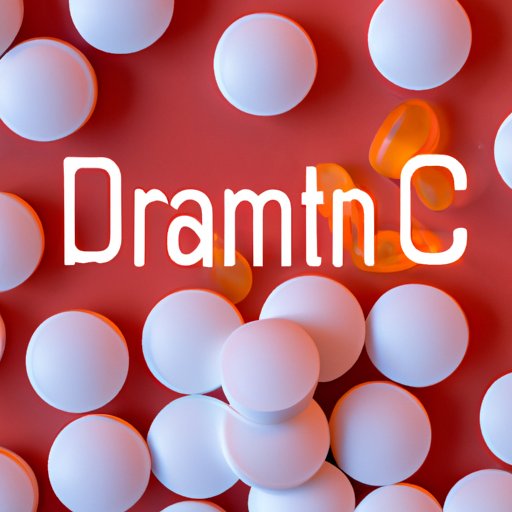
Introduction
Bruising, or the discoloration of skin caused by injury or trauma to blood vessels, is a common occurrence for most people. While mild or occasional bruising might not be a concern, frequent or severe bruising can be a sign of underlying health issues, including vitamin deficiencies.
Don’t Let A Vitamin Deficiency Leave You Black and Blue
Vitamins play an essential role in our bodily functions, including blood clotting, collagen production, and maintaining healthy skin and blood vessels. Deficiencies in certain vitamins can weaken these functions, leading to an increased risk of bruising even with minor trauma.
The Surprising Link Between Vitamin C Deficiency and Bruising
Vitamin C is an essential nutrient for our skin and blood vessels, helping to produce collagen and prevent oxidative damage to our cells. When we’re deficient in vitamin C, our skin becomes weakened, and our blood vessels become more prone to rupture, leading to easy and frequent bruising.
Adults should aim to consume at least 65-90 mg/day of vitamin C, and good food sources of vitamin C include citrus fruits, berries, leafy greens, and peppers. If you have trouble getting enough vitamin C through your diet, supplementation can be an effective way to boost your levels.
Bruising Easily? It Could Be a Sign of Vitamin K Deficiency
Vitamin K plays a critical role in our blood clotting process, helping to stop bleeding from minor injuries. When we’re deficient in vitamin K, we’re more likely to bleed excessively, leading to the appearance of bruising and excessive swelling.
Food sources of vitamin K include leafy greens, broccoli, and fermented foods. Vitamin K supplements are also available, but it’s important to speak with your healthcare provider before starting any new supplements.
Vitamin D Deficiency and Easy Bruising: What You Need To Know
Vitamin D is best known for its role in bone health by helping our bodies absorb calcium and phosphorus. However, vitamin D also plays a critical role in our immune system and preventing inflammation in our blood vessels.
Vitamin D deficiency is relatively common, and low levels can lead to an increased risk of easy bruising. Our bodies produce vitamin D when we’re exposed to sunlight, and good food sources include fatty fish, mushrooms, and fortified dairy products. Supplementation is also an option for those who struggle to get enough vitamin D through sunshine and food.
How Vitamin E Can Help Prevent Bruising and What to Eat For It
Vitamin E is an antioxidant that helps prevent damage to our cells and reduce inflammation in our body. It can also help maintain healthy skin and reduce the appearance of bruises.
Food sources of vitamin E include seeds, nuts, and vegetable oils, and supplementation is also an option for those who want to boost their intake.
Vitamin B12 Deficiency – A Hidden Culprit of Easy Bruising
Vitamin B12 is essential for our red blood cell production, which carries oxygen to our tissues. When we’re deficient in vitamin B12, our blood cells become fragile and more prone to rupture, leading to an increased risk of bruising.
Food sources of vitamin B12 include animal products such as meat, fish, and dairy, and supplementation is also an option for those who follow a strict vegan or vegetarian diet.
The Benefits of Vitamin Supplements for Preventing Bruising and Exploring Other Natural Remedy Options
While a balanced diet rich in vitamins is the best way to prevent nutrient deficiencies and reduce the risk of bruising, supplements can also be helpful. Quality multivitamin supplements can provide all the essential nutrients to help maintain skin health, wound healing, and blood clotting.
Other natural remedies for preventing bruising include herbal supplements such as arnica and bromelain, which have anti-inflammatory properties and can help reduce the severity and duration of bruises. Home remedies like applying cold compresses and elevating the affected area can also help reduce swelling and bruising.
However, it’s important to remember that supplements and natural remedies are not a substitute for medical treatment, and it’s always best to consult your healthcare provider before starting any new supplements or remedies.
Conclusion
Bruising might be a common occurrence, but frequent and severe bruising can be an indication of underlying health issues. Vitamin deficiencies are one of the leading causes of easy bruising, and it’s essential to prioritize nutrition to maintain optimal health and reduce the risk of bruising. By consuming a balanced diet, supplementing when necessary, and consulting with your healthcare provider, you can reduce the frequency and severity of bruising and maintain healthy skin and blood vessels.




